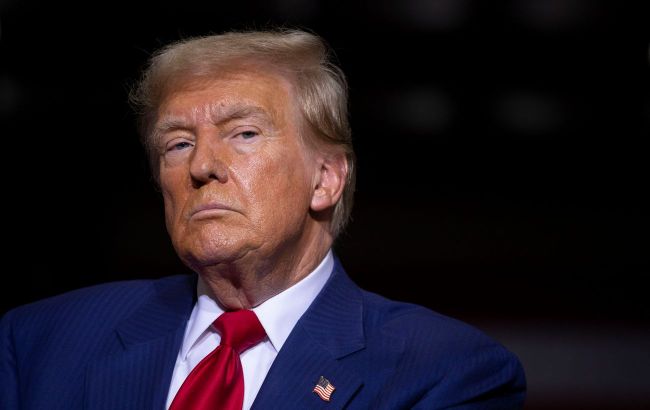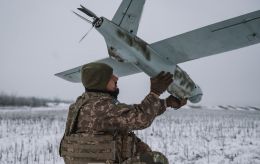Trump’s peace proposal for Ukraine: Freezing war, pressure on Putin, excluded NATO membership
 Former US President Donald Trump (photo: Getty Images)
Former US President Donald Trump (photo: Getty Images)
Former US President Donald Trump and his vice-presidential candidate J.D. Vance outlined a plan to end the war in Ukraine. They proposed a frozen conflict model with autonomous regions on both sides of a demilitarized zone, while Kyiv would remain outside NATO, according to the Financial Times.
War freezing
Trump's concept revises the Minsk agreements from 2014 and 2015, which failed to stop hostilities in eastern Ukraine. One of the former president's advisers stated that these agreements outlined a plan to maintain Ukraine's territorial integrity by establishing autonomous zones, but the conditions were never implemented or enforced.
According to the adviser, mechanisms will be included this time to enforce the agreement and impose consequences for violations. However, European troops, not NATO forces or UN peacekeepers, are to monitor adherence to the agreement.
Trump's allies argue that Ukraine is losing the war, making the insistence on resolution morally right. Trump believes that US President Joe Biden should talk to Russian dictator Vladimir Putin, as presidents did with Soviet leaders during the Cold War. At the same time, he considers NATO membership for Ukraine not an option in the short term.
Ukraine without NATO
Fred Fleitz, who worked in Trump’s first administration, says NATO membership could be excluded for several years to compel Russia to enter negotiations.
"We freeze the conflict, Ukraine does not cede any territory, they don’t give up their territorial claims, and we have negotiations with the understanding there probably won’t be a final agreement until Putin leaves the stage," he said.
However, this approach is unlikely to find unanimous support within the Republican Party.
Negotiations with Putin
One of the leading Republican national security experts in the House of Representatives, Mike Waltz, suggested that Trump use the threat of a collapse of the Russian economy through lowered oil and gas prices to push Putin into negotiations with Ukraine.
"The president very much understands leverage and we have tremendous economic leverage on Russia. The first step would be, in his words: ‘drill, baby, drill’. You flood the world with cheaper, cleaner American oil and gas. You drive down the price," he stated.
Saudi Arabia, a key ally of Trump during his first term, would not welcome such a move.
Trump's close associates claim that he could exert significant economic pressure on Putin. As evidence of his peacemaking abilities, they cite the Abraham Accords signed during his first presidential term between Israel and the UAE, Bahrain, Morocco, and Sudan.
"He has shown he knows how to bring both sides to the table. He’s done it consistently. Arabs and Israelis, Russians and Ukrainians will be next," said American diplomat Richard Grenell.
US election
Presidential elections will take place in the US on November 5. The main race is between Republican Donald Trump and Democrat Kamala Harris.
According to the latest polls, Trump has surpassed Harris in support, though by a slim margin. A Bloomberg poll shows the presidential candidates tied in seven key states.

